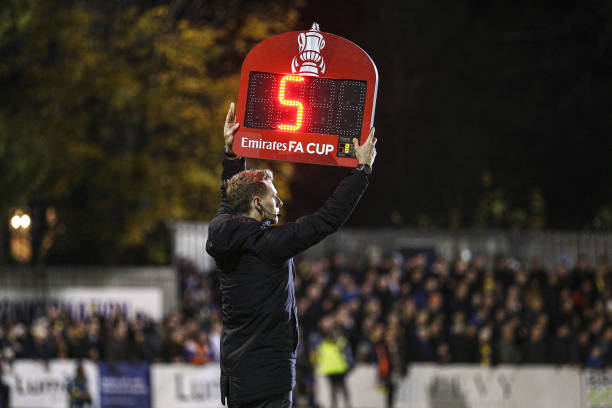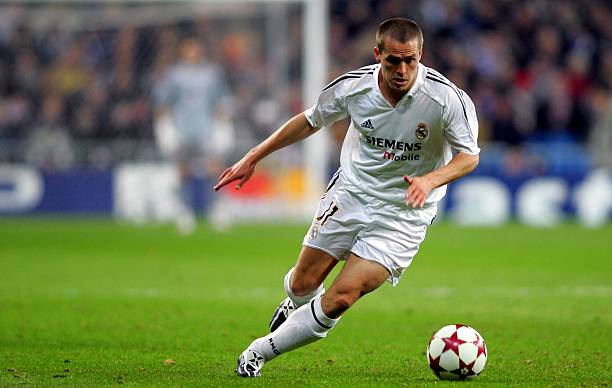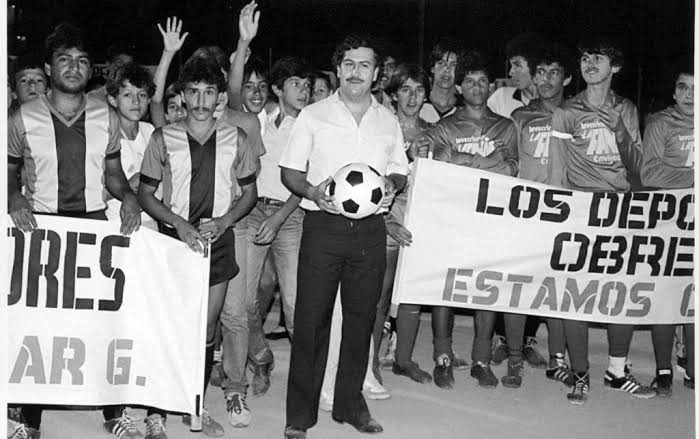Soccer is a game that is played under a particular timeframe, just like every other sport. There are several reasons behind this timing; there is a popular timing of 90 minutes that everyone is used to, and several others are less popular.
Furthermore, the duration of matches depends on the tournament rules, the kind of competition, and the age level.
In this article, let’s extensively discuss how soccer games are timed, as well as the intricacies behind the terms regular time, and extra time.
How Are Soccer Games Timed?
Several sports have different timing; some can be timeless and only end when a winner emerges based on set rules or when another participant withdraws due to fitness issues or injury.
However, in soccer, the global timing is 90 minutes, which is one hour and thirty minutes, with a break of fifteen minutes. Most of the time, the match ends after ninety minutes in friendlies, group matches, and league games.
In other competitions and formats like the knockout stage of any competition, depending on the rule of the organizers, a penalty shootout follows or extra time of fifteen minutes divided into two halves.
How are the 90 minutes in soccer played?
The time for soccer is always continuous as the clock is not stopped when the ball is out of play or even during injuries and substitution, although most of these times are recouped with additional or stoppage time.
The whole 90 minutes is usually split into two halves of 45 minutes each. In between the two, 45 minutes is a halftime of 15 minutes break, which both teams use to rest or strategize, making changes to tactics and eventually switching pitch sides when they come back in for the second half.
What does stoppage time in soccer mean?

Stoppage time, also known as added time or injury time, refers to the additional time added to the end of each half of a soccer game to account for time lost during that half.
This can include injuries, substitutions, and other stoppages of play. The head official is responsible for determining the length of stoppage time by keeping track of the time spent on these stoppages.
The amount of added time can vary depending on the number and length of stoppages that occurred during the half, making it a crucial aspect of the game.
The stoppage time that is added at the end of the first half and the second half is solely at the discretion of the referee.
It is not usually encompassing all the time that the ball is or was out of play.
However, this could change in the nearest future, as was seen in the 2022 FIFA World Cup in Qatar when additional times were well over 10 minutes, depending on how many stoppages and time the ball goes out of play.
Meanwhile, the referee has the reservation of extending the additional time added at the end of each half based on incidents that happen.
The official timekeeper is the center referee who keeps time of playing, tells the additional time, and also determines when the game starts and ends.
However, you may be wondering how soccer players and fans know the additional time that the center referee has given.
It is simply something done by the fourth official who communicates with the referee on his chosen added time which he then informs the fans and players by raising the time board or the substitution board indicating the number of minutes added.
The fourth official or even the assistant referees do not have the power to judge when a football match ends; only the center referee can stop a football match.
What is extra time in soccer?
Extra time in soccer is an additional period of play that is added to a game if the score is tied at the end of the regulation time, which is 90 minutes.
Extra time consists of two 15-minute periods, including any minutes of stoppage time. If the score remains tied at the end of extra time, the game may proceed to a penalty shootout to determine the winner. Extra time is commonly used in knockout games in tournaments.
In previous years extra time could end with the Golden goal, which means that any team that scores first in extra time automatically wins the game without completing the extra time.
There was also a silver goal where the team that scores first or that leads into extra-time halftime wins the match.
However, both extra time golden goal and silver goal have been removed from football, and teams now play for the whole 30 additional minutes till the end. Whoever has the highest score wins the match, and if it still ends in a draw after that, a penalty shootout is used to separate the winner.
Are there variations of soccer timing?
All over the world, in adult and professional football, the regular time for a full soccer match is 90 minutes.
However, this is not the case everytime. While the FIFA under-17 and the FIFA under-20 World Cup for both males and females also use 90 minutes, some underage competitions, both major and minor, often use 80 minutes which is 40 minutes for each half.
This reduced time is based on the organizer’s discretion; in fact, in some cases where organizers deem the players too young to complete 90 or 80 minutes, they play one hour of football with 30 minutes in each half, although the additional extra time could apply again based on organizers discretion.
Conclusion
In a review of what we’ve discussed in this article, soccer timing is counted upwards rather than downwards, which is available in other sports so as to enable even the least developed countries to time their soccer games in a simplistic manner.
The generally accepted and FIFA-adopted time for a professional soccer game is 90 minutes which is divided into 45 halves each. Only the referee is in charge of soccer time and can determine when a soccer game will start and end; he is also the only person that determines the additional time at the end of each half.
Extra time of 30 minutes, which is 15 minutes in half, is applicable to soccer games that end in a draw, especially in knockout competitions that need a winner to emerge.
Also, you can find lesser timing in amateur football and age-group competitions where 80 minutes in each half of 40 minutes is played based on organizers’ arrangements.
YOU JUST HAVE TO ALSO FIND OUT:
- What Is A Clean Sheet in Soccer? A Beginner’s Guide
- How Do Soccer Standings Work? A Comprehensive Explanation
- How Are Player Soccer Match Ratings Determined
- How Are Soccer Teams Ranked?
- What Is The Meaning Of Relegation In Soccer?
- How Does Goal-line Technology Work?
- How Do Soccer Clubs Make Money?
- How Do Soccer Commentators Know The Player?
- How Much Do Soccer Players Make?
- How Do Soccer Playoffs Work?







